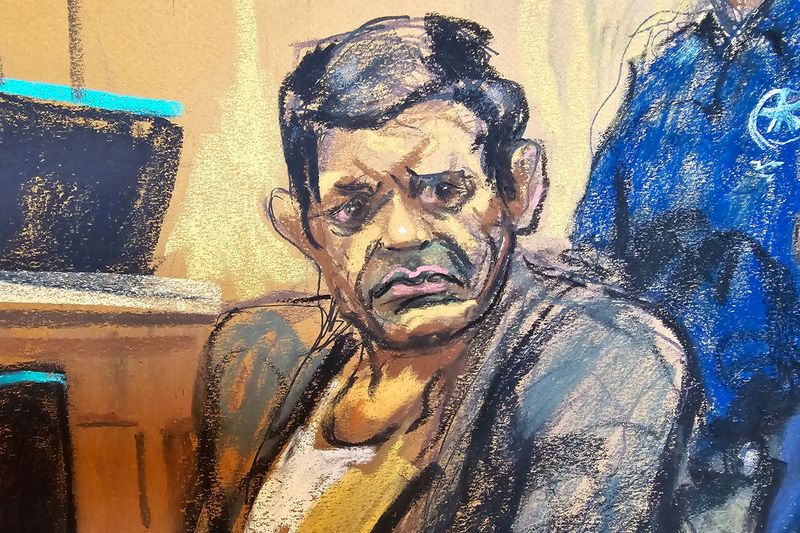By Kanishka Singh, Sarah N. Lynch and Luc Cohen
WASHINGTON/PRAGUE/NEW YORK (Reuters) - An Indian man suspected by the U.S. of involvement in an unsuccessful Indian government-backed plot to kill a Sikh separatist on American soil pleaded not guilty on Monday to murder-for-hire conspiracy charges in federal court in Manhattan.
Nikhil Gupta has been accused by U.S. federal prosecutors of plotting with an Indian government official to kill Gurpatwant Singh Pannun, a U.S. resident who advocated for a sovereign Sikh state in northern India.
Last June, Gupta traveled to Prague from India and was arrested by Czech authorities. A Czech court last month rejected his petition to avoid being sent to the U.S. He was extradited to the U.S. on Friday, Czech Justice Minister Pavel Blazek said.
At a hearing on Monday in Manhattan, U.S. Magistrate Judge James Cott ordered Gupta, 52, detained at least until the next conference in his case on June 28. Gupta is being held at the Metropolitan Detention Center in Brooklyn, U.S. Bureau of Prisons records showed.
Jeffrey Chabrowe, Gupta's defense lawyer, said it was important not to rush to conclusions.
"This is a complex matter for both of our countries," Chabrowe told reporters after the hearing. "Background and details will develop that may cast government allegations into an entirely new light."
The discovery of alleged assassination plots against Sikh separatists in the U.S. and Canada has tested relations with India, seen by Western nations as a counter to China's rising global influence. New Delhi denies involvement in such plots.
Canada said in September its intelligence agencies were pursuing allegations linking India's government to the murder of Sikh separatist leader Hardeep Singh Nijjar in June 2023 in the Canadian province of British Columbia.
In November, U.S. authorities said an Indian government official had directed the plot in the attempted murder of Pannun, who is a U.S. and Canadian citizen. Gupta is accused of involvement in that plot.
In a statement after the hearing, Pannun called Gupta a "foot soldier" and said he was confident that the U.S. justice system would also hold the Indian officials who hired him accountable.
India's government has dissociated itself from the plot against Pannun, saying it was against government policy. It has said it would formally investigate security concerns raised by Washington.

New Delhi has long complained about Sikh separatist groups outside India, viewing them as security threats. The groups have kept alive the movement for Khalistan, or the demand for an independent Sikh state to be carved out of India.
Last month, Washington said it was satisfied so far with India's moves to ensure accountability in the alleged plots, but added that many steps still needed to be taken.
